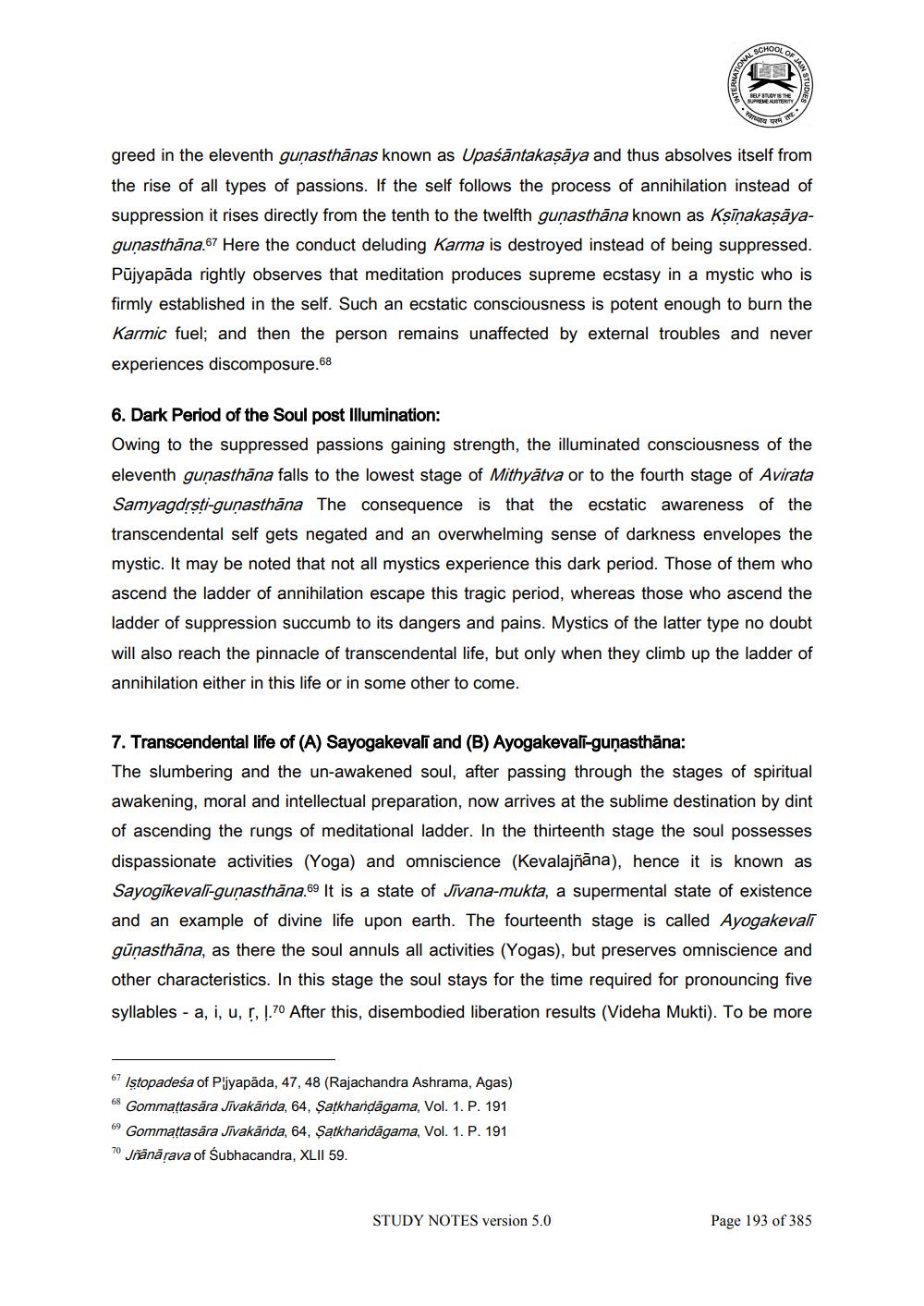________________
SCHOOL
67 Istopadesa of Pijyapada, 47, 48 (Rajachandra Ashrama, Agas)
68 Gommattasära Jivakända, 64, Satkhanḍāgama, Vol. 1. P. 191
69 Gommaṭtasära Jivakända, 64, Şatkhandāgama, Vol. 1. P. 191
Jñänärava of Subhacandra, XLII 59.
70
OF
SELF STUDY IS THE
SUPREME AUSTERITY
स्वाध्याय
परम
greed in the eleventh guṇasthānas known as Upasantakaṣāya and thus absolves itself from the rise of all types of passions. If the self follows the process of annihilation instead of suppression it rises directly from the tenth to the twelfth guṇasthāna known as Kṣinakaṣāyaguṇasthāna.67 Here the conduct deluding Karma is destroyed instead of being suppressed. Pujyapāda rightly observes that meditation produces supreme ecstasy in a mystic who is firmly established in the self. Such an ecstatic consciousness is potent enough to burn the Karmic fuel; and then the person remains unaffected by external troubles and never experiences discomposure.68
STUDY NOTES version 5.0
6. Dark Period of the Soul post Illumination:
Owing to the suppressed passions gaining strength, the illuminated consciousness of the eleventh guṇasthāna falls to the lowest stage of Mithyatva or to the fourth stage of Avirata Samyagdrsti-gunasthana The consequence is that the ecstatic awareness of the transcendental self gets negated and an overwhelming sense of darkness envelopes the mystic. It may be noted that not all mystics experience this dark period. Those of them who ascend the ladder of annihilation escape this tragic period, whereas those who ascend the ladder of suppression succumb to its dangers and pains. Mystics of the latter type no doubt will also reach the pinnacle of transcendental life, but only when they climb up the ladder of annihilation either in this life or in some other to come.
तप
7. Transcendental life of (A) Sayogakevalí and (B) Ayogakeval-gunasthāna:
The slumbering and the un-awakened soul, after passing through the stages of spiritual awakening, moral and intellectual preparation, now arrives at the sublime destination by dint of ascending the rungs of meditational ladder. In the thirteenth stage the soul possesses dispassionate activities (Yoga) and omniscience (Kevalajñāna), hence it is known as Sayogikevali-gunasthana. It is a state of Jivana-mukta, a supermental state of existence and an example of divine life upon earth. The fourteenth stage is called Ayogakevali gūṇasthāna, as there the soul annuls all activities (Yogas), but preserves omniscience and other characteristics. In this stage the soul stays for the time required for pronouncing five syllables - a, i, u, r, !.70 After this, disembodied liberation results (Videha Mukti). To be more
Page 193 of 385




